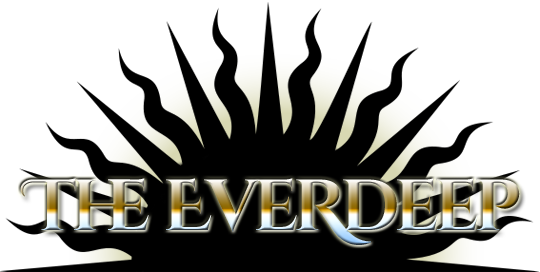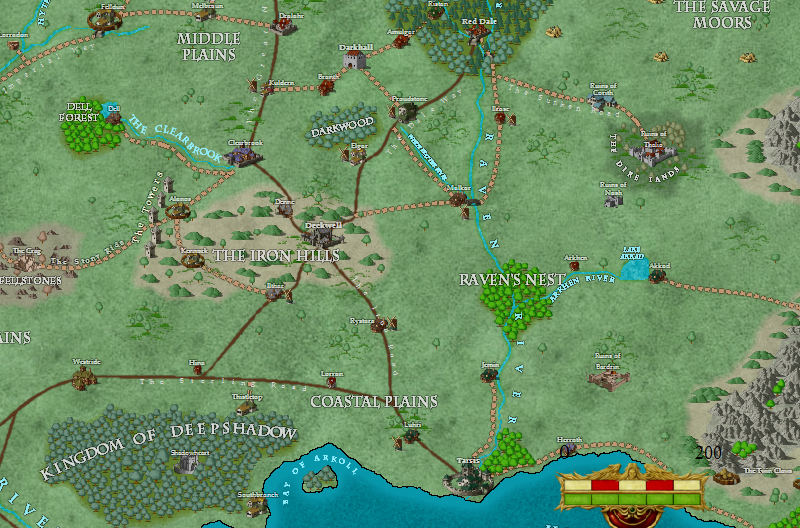A Time of Plague
Jeeze, I haven’t written anything here since September?! I mean, I can tell you why, but that’s still longer than I thought.
PROGRESS ON BOOK II
From October to December, there wasn’t a lot to report. Finished up Chapter 13, then re-wrote it because I didn’t like it, then ran into chronology issues (a repeat problem when you have limited, rotating perspectives and intertwined plotlines). Then, several high profile projects in famous locations, a hacking school, and regular work kept me on the road almost continuously from January until the Great Stupid Plague Shutdown. Used this time to solve the chronology issues and decide how this book is going to end (probably), and am now about 75% complete. I intend to be finished by the end of the year. Even have cover art picked out.
WRITING DIALOGUE
When last we ended, I was discussing aspects of writing because that’s what people ask me about the most: X is neat, how to you do X? So, today, I’m going to address a writing topic that is often under the radar: dialogue.
Inter-character communication is supposed to be a given. Every real story has it, and its presentation typically passes without comment.
Until you screw it up. THEN it’s a major criticism that will drive people away from your work and possibly future works. After all, who wants to read a communicator who cannot portray routine communication?
Judgments on dialogue are subjective and so opinions vary, but I think the chief crime against language committed by writers in the realm of dialogue is stylistic slavishness. That is, a writer commits to a genre or style and limits their writing (and, therefore, their dialogue) to the tropes and stereotypes of that category. This lends itself to melodrama and absurdity.
An example of this crime from a popular book was Jacqueline Carey’s Kushiel’s series I read years ago.

These books are set in not-France and filled with bastardized elements of not-Celtic, not-Jewish, and other looted mythologies. The first book follows the British romance-style social/political adventures of a masochistic courtesan in her quest to defeat an invasion of not-Germans with the connivance of not-Vichy locals.
As I’m sure you can guess, I have zero respect for the “world-building” of these books. The primary appeal is the Pride and Prejudice social and political gamesmanship that has enticed generations of women, sprinkled with S&M sex scenes from a masochistic submissive’s perspective. In fact, the lame world-building was possibly by design so as to not distract from the chick-bait.
But this is about dialogue and style. And there’s a twist regarding this book, because the narration is first-person past, like an autobiography. So the entire book is written ‘in-character’ as a form of speech. ‘Dialogue’ in this book is inseparable from narrative style.
A style I hate. HATE. It’s artificial and pretentious, like someone’s idea of literary sophistication came from watching Jane Austen stories on Lifetime. “Betwixt” these (p. 3), “mahyap” that, “daresay” the other (p. 1), with ‘atrembling profundities and elocution, betimes.’ Fucking gag me.
This is a prime example of what I mean by stylistic slavishness. This is supposed to be a female-centric, Franco-philic novel about social maneuvering. Ergo, the style must be faux-19th century make-believe language as imitated by poser sophisticates.
WTH? No, lady. Just no. Have you ever even been to France? No one talks like that. No population EVER talked like that. The only individuals who do are pseudo-intellectual half-wits pretending to be literary salon-goers, aping caricatures like living parodies because they don’t know any better.

This is the kind of thing satirists do if they want to make fun of something. They take an identifiable trait, like tropey dialogue, and play it up for comic effect. An episode of Big Bang Theory where Leonard started writing a novel did this. It was a mystery, and all the scenes were filled with mystery stereotypes, including stereotypical characters, the locked door trope, and melodramatic noire-ish language. It was funny. It was mockery.
And this lady wrote two whole series of books like this that sold like gangbusters. Rather like Fifty Shades of Grey. So, you know, bad writing isn’t an impediment to sales so long as it’s full of masochistic porn.
*sigh*
BACK ON TRACK
Now that I’ve undermined my own point by admitting shitty dialogue can make you a millionaire so long as it’s about whips and chains, let me move on to writing good dialogue.
The essence of good dialogue is fidelity to reality. Verisimilitude. It needs to read like how people really speak. I know that sounds easy, but writers screw this up all. The. Time.
Reason 1 is the stylistic slavishness I first mentioned. They’re writing in Genre A, and so everything is colored by that. Everyone in fantasy talks like Elrond telling an epic legend, everyone in the murder mystery sounds like Humphrey Bogart, and everyone in the sci-fi story sounds like Spock.
Reason 2 is over-writing and unnecessary complexity. Some people are so concerned about showing off their vocabulary they sabotage their own writing. Thanks to its bastard history, English is an unusually rich language full of good, purposeful words. But they’re often ignored in favor of buzzwords and thesaurus favorites.
This crap pervades the government. Perfectly intelligent people who otherwise communicate well lose their damned minds when asked to draft an official document. Everything is ‘utilized;’ nothing is ‘used.’ ‘Capabilities,’ ‘endeavors,’ ‘support,’ and ‘synergy’ replaced ‘powers,’ ‘efforts/attempts,’ ‘help,’ and ‘cooperation.’ Their desire to sound ‘official’ ruins their writing and makes the final product ponderous and difficult, and further contributes to the impression that that’s how all government writing must be.
Genre writers are often just as culpable.
Finally, Reason 3 is that many writers are introverts with relatively little experience in real life conversation. For these people, most of their ‘knowledge’ of dialogue is itself filtered by whatever art they consume: comic books/graphic novels, genre fiction, TV shows, Internet culture, whatever. When your real experience is limited to rote interactions with everyday social situations, you can’t plausibly write how people speak in extremis. And so the sorts of situations that are interesting to write about and make for good stories are alien to them.
Consider modern Hollywood and the military. Almost zero Hollywood screenwriters these days have any military experience at all, and most of those who do (that I’ve seen; I didn’t go hunting) seem to have been single-tour enlistees. So portrayals of the military in American cinema are almost always wrong. Like, really wrong. Basic, fundamental mistakes that no real service member could ever make. Like in Basic, that one of my drill sergeants made people watch as a punishment to try to identify all the fuck ups. I still remember seeing Jackson’s character wearing E-4 rank when he was supposed to be senior enlisted. Even The Hurt Locker, that most people like, is full of screw-ups.

And that’s not addressing the military dialogue. Most movie soldiers don’t talk like real soldiers, don’t act like real soldiers, and otherwise have no more resemblance to real soldiers than comic book characters. Our real speech included a lot more “high speeds,” “squared aways,” and “jacked ups” and fewer “SNAFUs” and “oh-six-hundreds” [real soldiers know that time is ‘zero-six’].
Everyone has heard the “write what you know” advice. Well, there’s a corollary. “If you try to write what you don’t know, get help.” And that includes dialogue.
HOW TO WRITE NOT-BAD DIALOGUE
I can tell you how to avoid Reasons 1 and 2. Reason 3 is an actual limit on the writer’s own ability, so there’ no avoiding that. Instead, compensate and run your work past people who aren’t introverted bookworms, specifically for criticism of the dialogue.
But to avoid the stylistic pitfalls of 1 and 2, do this: write contemporary dialogue. Write what YOU might say as that character. Don’t limit words or approaches to what you think ought to spring from your chosen genre, at first.
Afterward, when the scene is complete and you’ve decided what they need to say, revise it for style and anachronisms. A gruff character should have their words adjusted for brevity and stripped of social niceties. A powdered aristocrat should probably undergo the opposite. A child will know fewer words and have more limited perspective than an adult. Et cetera.
Regarding anachronisms, an idiom from modern sports won’t make any sense in a story set in Renaissance England or a fantasy world. Likewise, many 21st century curse words would be unknown. And some of these can be sneaky. For instance, the word “spartan” in modern context can just mean ‘with minimal niceties,’ but it is derived from a real place with a certain culture at a certain time and is therefore unsuitable for a fantasy universe that never had a Sparta.
The point of this approach is to make the words contextually appropriate without artificially limiting the character’s abilities to say what they should mean. This will help you avoid the traps of stylistic slavishness and overwriting.
LET’S GO DEEPER
That will avoid some common errors, but will it make it good? Maybe not. There are a couple more matters to keep in mind for good dialogue.
First, over-explanation/narration. Many characters need to speak less. Some writers over-rely on spoken words as an easy exposition machine. Even if the dialogue is competent, characters end up as little more than robots, appearing in scenes to explain things before wandering off. A lot can be delivered by actions, facial expressions, tone, attitude, hesitance v. eagerness, and so on. Real people don’t narrate their lives when they speak, and neither should your characters. “Show, don’t tell,” yeah?
Second, plausible behavior and character tropes. I doubt anyone in history has ever carried on an extended internal monologue and then physically shrugged to themselves, complete with a facial expression. But the number of times this ridiculousness has been written into fiction must surely number in the thousands. Try to keep your bullshit detector on.
Finally, characters should sound different. Without just adopting stereotypes, word choices, speech patterns, pronunciations, and so on should vary. Even members of the same family speak differently; sometimes on purpose. Slight accents and cultural mannerisms hint at character backgrounds without having to state it outright. Elevated speech and concerns can imply delicate sensibilities or foppishness. Crude speech can imply a difficult past or contempt for social rituals.
And these messages are delivered subtly, as much by what is missing as what is present. This, in effect, makes your character’s dialogue doubly meaningful.
SUMMARY
Don’t be a slave to style. Don’t overwrite. Get help when you need it. Speak less, act more. Stay plausible. And tie a character’s words to his background and personality.

 Previous Post
Previous Post Next Post
Next Post


